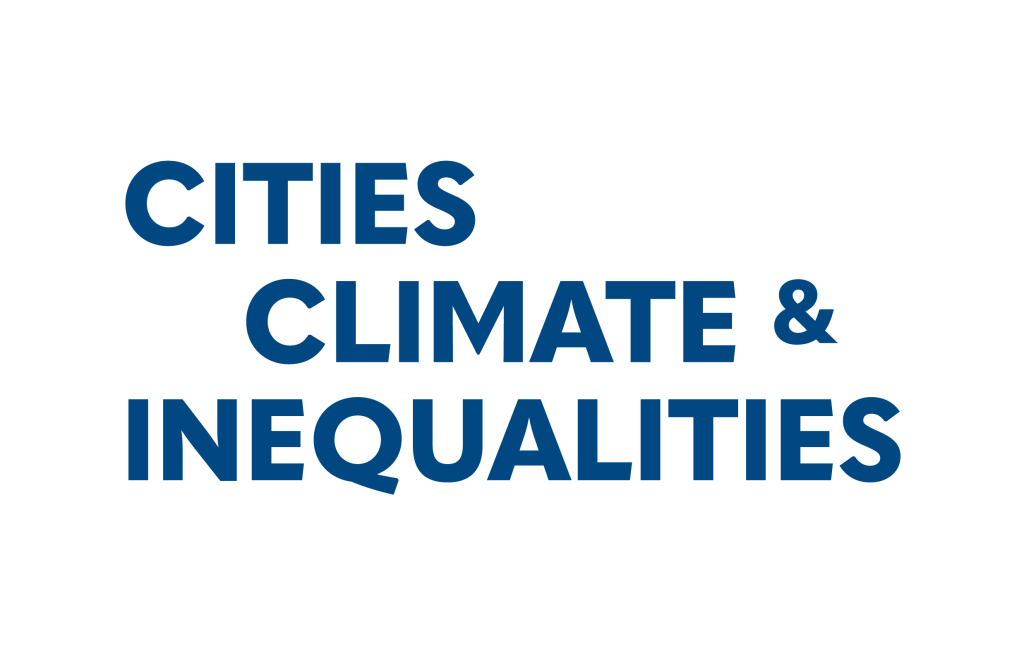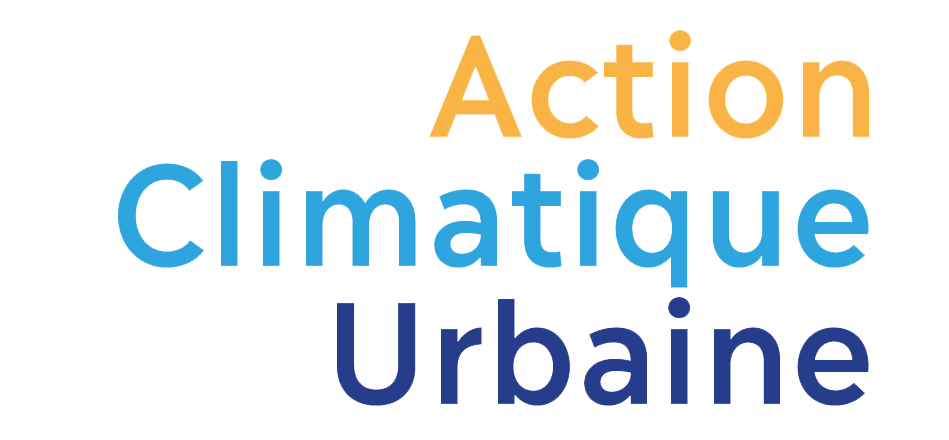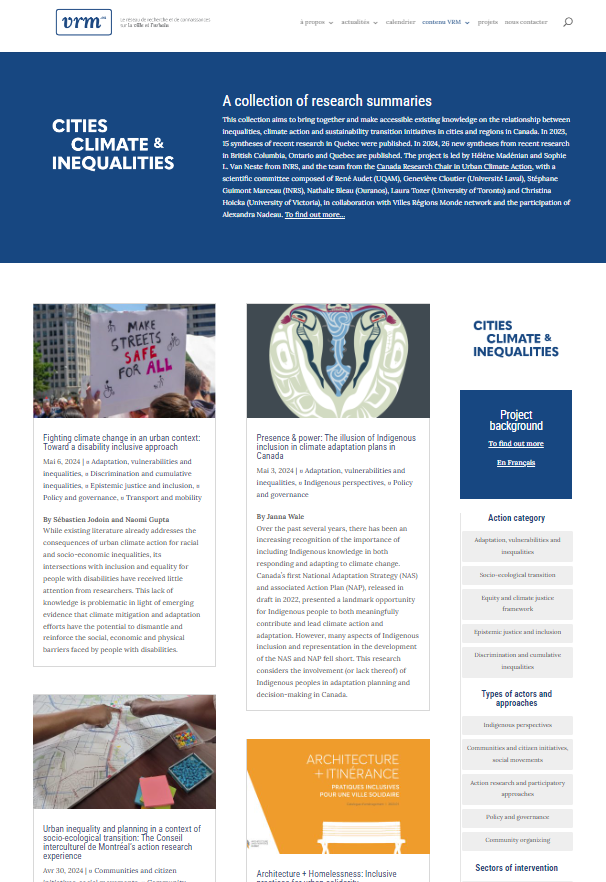In the face of the global climate crisis and slow progress on climate action, enthusiasm for city and local initiatives is growing and shows the capacity of local stakeholders to take action. Yet, research shows concerning increases in inequalities, and relations with climate action (central to the IPCC 2002 report, Van Neste et al. 2022, Amorim et al. 2022). Structural factors are involved, while the people, communities and groups most affected by climate change are those who have contributed least to it, both globally and locally. Inequalities can also be exacerbated by climate policies.

Then, how can we take action to deal with the impacts of climate change without creating or reinforcing unequal dynamics? How can climate action be used to reduce inequalities in cities and regions? How can we respond to the context of multiple crises that disproportionately and intersectionality affect marginalized populations?
The Cities, Climate and Inequalities collection aims to bring together and make accessible existing knowledge on these issues in Canada, by disseminating peer-reviewed research summaries under the coordination of a scientific committee. The objective is to mobilize and disseminate recent research on the relationship between inequalities, climate action and sustainability transition initiatives in cities of different sizes, regions and contexts. In particular, the Collection aims to highlight and document different forms of inequalities that need to be taken into account from an equity and climate justice perspective.
The Collection brings together research originally written in French and English, with the aim of increasing access to this research in both languages, and increasing the conversation between Canadian provinces on these issues. In addition, it reports on knowledge acquired inside and outside the academic world, bringing together syntheses of academic research, collaborative and participatory research, and association research (notably on homelessness, inclusion and territorial equity), reflecting the rich diversity of knowledge.
In 2023, 15 syntheses of recent research in Quebec were published, dealing with inequalities in terms of distributive justice (unequal distribution of benefits and harms caused by targeted publics and territories) and procedural justice (unequal opportunities to participate in climate policy and action choices), as well as gender-related inequalities, addressing mainly transportation electrification, climate change adaptation and greening policies.
In 2024, 26 new syntheses were published from recent research in British Columbia, Ontario and Quebec. These syntheses fall into several categories of action (adaptation, socio-ecological transition, frameworks for equity and climate justice, approaches to inclusion and epistemic justice, combating discrimination and the impacts of cumulative inequalities), deal with different types of actors and approaches (indigenous perspective, citizen initiatives, community and social movements, action research, policy analysis and governance), with some syntheses targeting specific sectors of intervention (housing, energy, mobility and greening).
The project is led by Hélène Madénian and Sophie L. Van Neste from INRS, and the team from the Canada Research Chair in Urban Climate Action, with a scientific committee composed of René Audet (UQAM), Geneviève Cloutier (Université Laval), Stéphane Guimont Marceau (INRS), Nathalie Bleau (Ouranos), Laura Tozer (University of Toronto) and Christina Hoicka from (University of Victoria), in collaboration with Villes Régions Monde network and the participation of Alexandra Nadeau.
Video of the bilingual webinar (with simultaneous translation) launching the Cities, Climate and Inequalities Collection of research summarie on May 24, 2024 with presentations of three research syntheses:
- Reciprocal Training: An Instrument of Epistemic Justice in Grassroot Campaigns for a Just Energy Transition, by Laurence Brière, Professor of environmental education at UQAM.
- Presence & Power: The Illusion of Indigenous Inclusion in Climate Adaptation Plans in Canada, by Janna Wale, Policy Advisor, Indigenous Research, Canadian Climate Institute
- Exploring equity and justice content in Vancouver’s environmental plans, by Andréanne Doyon, Professor at the School of Resource and Environmental Management at Simon Fraser University.


